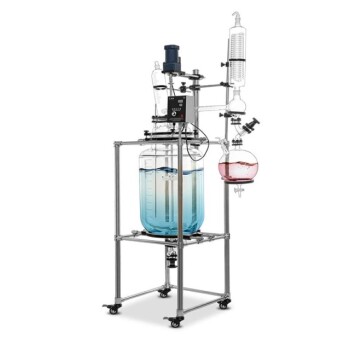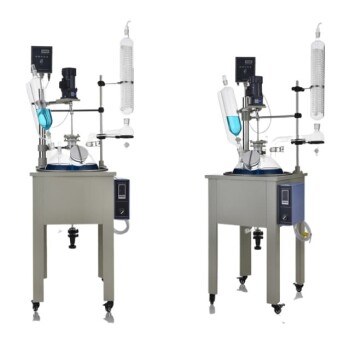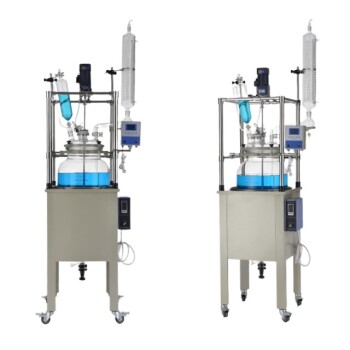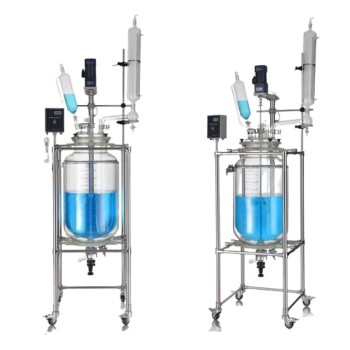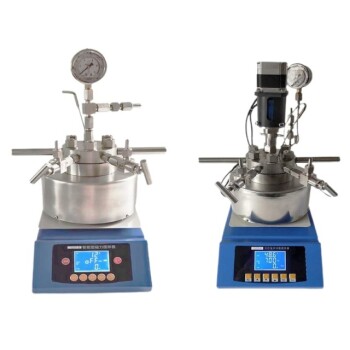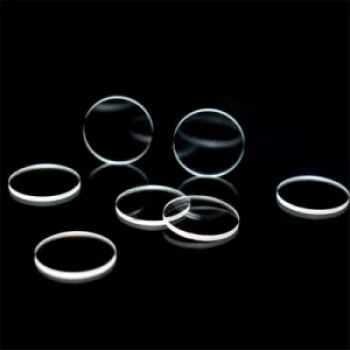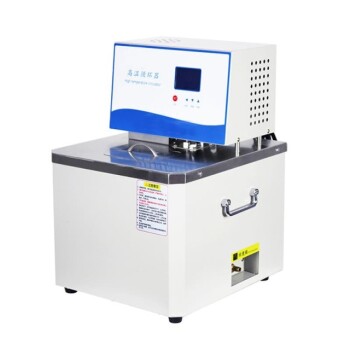Glass reactors are versatile and widely used across various industries due to their transparency, chemical resistance, and adaptability to different processes. They are essential in industries such as pharmaceuticals, biochemistry, fine chemicals, food production, and scientific research. Their applications range from chemical synthesis and reaction screening to temperature-sensitive reactions, hydrogenation, oxidation, and photochemical processes. Glass reactors are also employed in large-scale operations, such as in pharmaceutical and chemical industries, where they support processes like sulfonation, nitration, polymerization, and condensation. Their transparency allows for easy monitoring of reactions, while their design ensures stable production, improved product quality, and reduced environmental impact.
Key Points Explained:

-
Industries Utilizing Glass Reactors:
- Pharmaceuticals: Glass reactors are critical for drug development, synthesis, and production. They are used in processes like hydrogenation, oxidation, and polymerization, which are essential for creating active pharmaceutical ingredients (APIs).
- Biochemistry and Biological Pharmacy: These reactors are ideal for handling sensitive biochemical reactions, such as enzyme catalysis and fermentation, due to their inert nature and transparency.
- Fine Chemical Production: Glass reactors are used to produce high-purity chemicals, intermediates, and specialty compounds. Their resistance to corrosion and ability to handle precise temperature control make them suitable for fine chemical synthesis.
- Food Industry: They are employed in processes like flavor extraction, food additive production, and quality testing, ensuring compliance with safety and hygiene standards.
- Educational and Research Institutions: Glass reactors are used in laboratories for teaching, experimentation, and research, providing a clear view of reactions and processes.
-
Key Processes Enabled by Glass Reactors:
- Chemical Synthesis: Glass reactors facilitate the creation of complex molecules through reactions like sulfonation, nitration, and alkylation.
- Reaction Screening: Their transparency allows researchers to monitor and optimize reactions in real-time, making them ideal for screening new chemical processes.
- Temperature-Sensitive Reactions: Glass reactors can handle reactions requiring precise temperature control, such as photochemical reactions or those involving heat-sensitive compounds.
- Hydrogenation and Oxidation: These reactors are used for catalytic hydrogenation and oxidation processes, which are common in pharmaceutical and chemical manufacturing.
- Polymerization and Condensation: Glass reactors support the production of polymers and other materials through controlled polymerization and condensation reactions.
-
Advantages of Glass Reactors:
- Transparency: Allows for easy visual monitoring of reactions, ensuring quality control and process optimization.
- Chemical Resistance: Glass is resistant to most chemicals, making it suitable for a wide range of reactions without contamination risks.
- Scalability: Glass reactors are available in various sizes, from small laboratory units to large industrial systems, enabling scalability from research to production.
- Environmental Benefits: They support automated and program-controlled operations, reducing manual labor and minimizing environmental pollution.
-
Applications in Specific Industries:
- Petrochemical and Rubber: Used for processes like cracking, reforming, and polymerization to produce fuels, plastics, and synthetic rubber.
- Pesticide and Dye Production: Glass reactors are employed in the synthesis of organic dyes, intermediates, and pesticide formulations.
- Metallurgical Industry: They are used for processes like metal extraction and refining, where precise chemical reactions are required.
-
Large-Scale Applications:
- 100L Glass Reactors: Commonly used in pharmaceutical and chemical industries for large-scale production. Their heavy-duty design ensures durability and efficiency in high-volume operations.
-
Future Trends:
- Automation and Program Control: Increasing adoption of automated glass reactors for improved precision, reduced labor costs, and enhanced safety.
- Sustainability: Development of eco-friendly glass reactor designs to further minimize environmental impact and energy consumption.
In summary, glass reactors are indispensable tools in modern industries, enabling a wide range of chemical processes with precision, efficiency, and environmental benefits. Their versatility and adaptability make them a cornerstone of innovation and production across multiple sectors.
Summary Table:
| Aspect | Details |
|---|---|
| Key Industries | Pharmaceuticals, Biochemistry, Fine Chemicals, Food Production, Research |
| Key Processes | Chemical Synthesis, Hydrogenation, Oxidation, Polymerization, Condensation |
| Advantages | Transparency, Chemical Resistance, Scalability, Environmental Benefits |
| Large-Scale Use | 100L Reactors for Pharmaceutical and Chemical Production |
| Future Trends | Automation, Program Control, Sustainability |
Explore how glass reactors can revolutionize your processes—contact us today for expert guidance!

